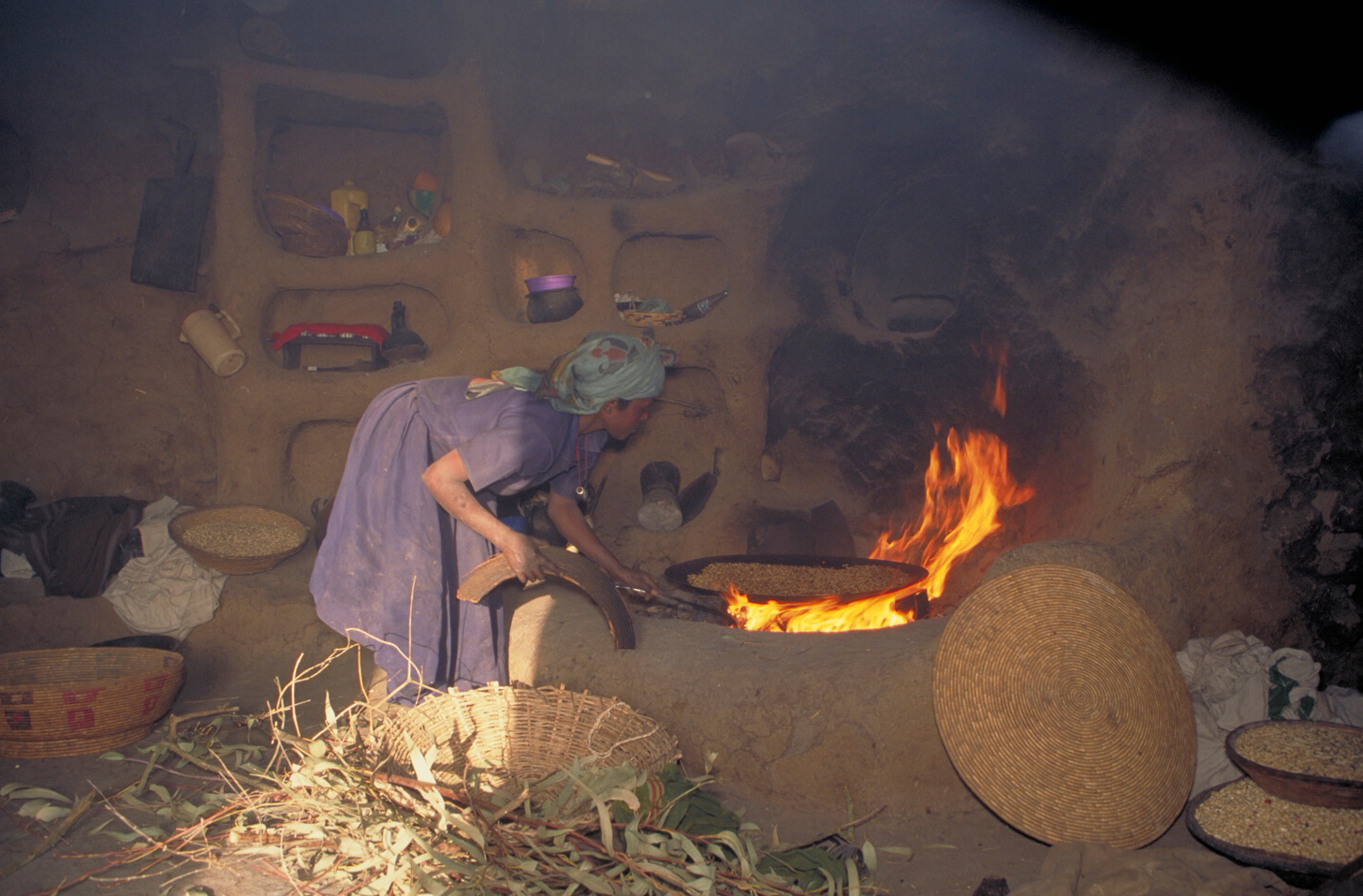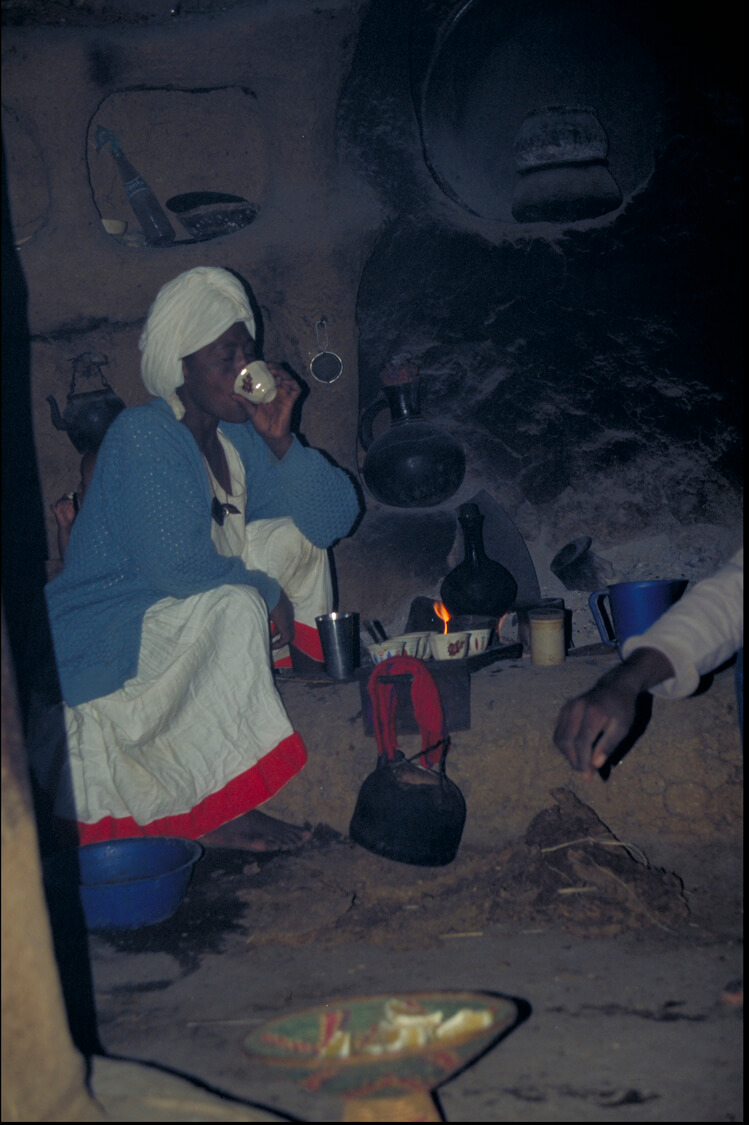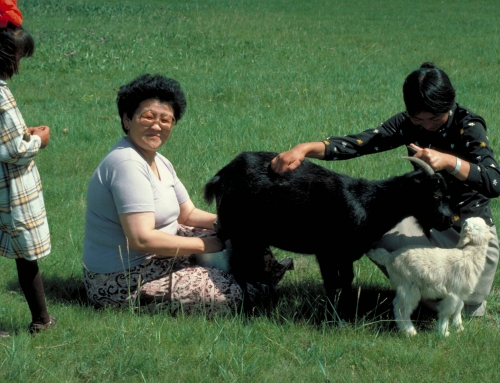
The coffee ceremony
Having coffee in Ethiopia is a meaningful moment, done as a ceremony, and it takes time. Bizuneth prepares some coffee. A long process from the moment of roasting the white beans to their grounding, brewing and serving. We are invited, baby included, to smell the aromas that are getting stronger with every step.
Part of the energy Bizunesh puts into her work is to assure the means to have her coffee
Coffee morning and night but it rarely happens at midday happens because of lack of time. Having coffee in Ethiopia is a meaningful moment, done as a ceremony, and it takes time. Bizunesh likes this special tradition.She and her husband accept the lengthy preparation as a moment to relax.
Bizunesh lights incense in the house while she roasts the white coffee beans. When ready, she lifts the plate to her nose, lets her children smell it and the round kitchen hut fills with wonderful odors that raises the pleasure when the coffee is finally served.
Well planned! As Belay comes in putting down the bags of ground maize, his wife naturally serves him the first of the three cups of coffee.
The Belays have no watch and seem to have little to do with either Ethiopian time or Western time. They have found their own way to manage and survive where many do not.
The use of dung
On her way back to the dry-season kitchen Bizunesh picks up the donkey and sheep dung which Teshome, her cattle-keeper-son, has brought back from the grazing area yesterday. It burns slower then cow-dung. It takes less fuel and lasts longer. She starts the fire to cook the next three days’s supply of injera, the traditional sour pancake-type bread eaten at every meal in Ethiopia.






